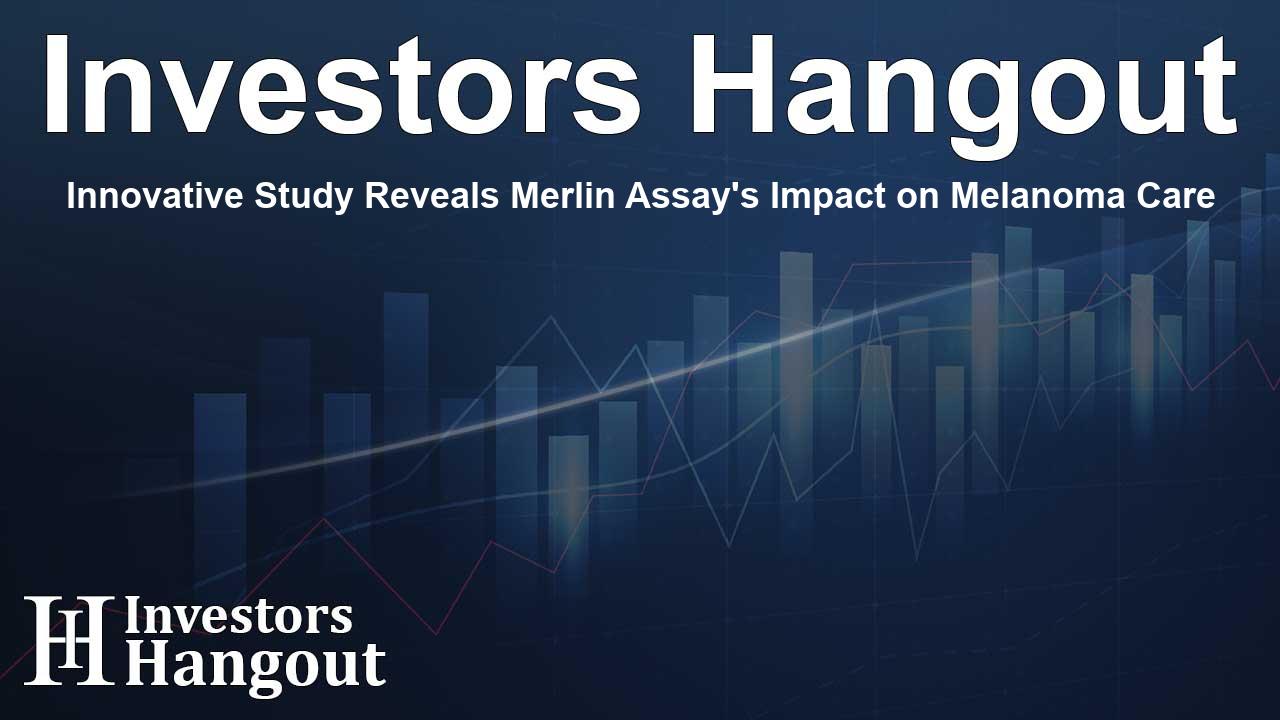Innovative Study Reveals Merlin Assay's Impact on Melanoma Care

Groundbreaking Findings from the Danish Multicenter Study
Recently, a significant study was conducted to validate the effectiveness of the Merlin Assay, developed by SkylineDx, a pioneering diagnostics company. This independent, blinded research highlights how Merlin can substantially lower the necessity for sentinel lymph node biopsy (SLNB) in melanoma patients. With findings published in a prominent medical journal, it is clear that Merlin plays a crucial role in identifying those at low risk for metastatic disease.
The Importance of the Merlin Assay
The Merlin Assay is designed to guide therapeutic decisions for patients diagnosed with early-stage melanoma. Particularly impactful for pT1 and pT2 patient groups, the study revealed that many individuals could potentially avoid invasive SLNB procedures. This innovation not only enhances patient comfort but also streamlines the process of melanoma treatment.
Key Results of the Study
The validation study analyzed tissue samples from 536 newly diagnosed melanoma patients who had previously undergone SLNB between certain years. The results demonstrated that Merlin's outcome labels were highly predictive when compared to patients’ actual sentinel lymph node status. This method refines patient stratification by accurately identifying those with a low risk of nodal metastasis.
Statistical Insights
Among the patients tested, those classified as CP-GEP Low-Risk showed a staggering potential SLNB reduction rate of 72.7% in pT1 patients, which aligns closely with other validation studies. In fact, in the broader pT1-pT3 melanoma cohort, 41% of the patients could have safely avoided SLNB surgery, reflecting the assay's efficacy.
Clinical Implications of the Findings
As stated by Dr. Marie B.-M. Weitemeyer, the first author of the study, the Merlin test allows for more informed selection in regards to SLNB, minimizing unnecessary procedures. These findings are particularly exciting given that many patients who undergo SLNB do not show signs of metastasis, thus questioning the necessity of this invasive process.
Broader Context in Melanoma Treatment
Current clinical guidelines suggest SLNB for pT1b melanoma patients and above, yet the fact remains that 85% of these patients may not exhibit SLN metastasis. The revelations made about the Merlin Assay indicate that it offers a beneficial alternative that could lessen the strain on healthcare systems and enhance patient care.
What is the Merlin Assay?
The Merlin Assay represents a unique tool in melanoma management, incorporating both clinicopathologic variables and gene expression profiling into a comprehensive predictive model. This is currently the only GEP test available that effectively categorizes patients as High or Low Risk for metastasis, thus guiding them toward appropriate treatment pathways as outlined in oncological guidelines.
Collaboration and Future Directions
SkylineDx, headquartered in Rotterdam and with operations in the U.S., continues to partner with diagnostic service providers around the globe. This collaboration aims to bring the benefits of the Merlin Assay to an even broader patient demographic, reflecting the commitment to advancing melanoma care.
Frequently Asked Questions
What does the Merlin Assay test for?
The Merlin Assay predicts the risk of metastasis in melanoma patients, helping determine whether they require invasive procedures like SLNB.
What were the key findings from the Danish study?
The study showed that the Merlin Assay could potentially reduce SLNB procedures by over 40%, particularly in pT1 patients.
How does the Merlin Assay impact patient care?
By accurately identifying low-risk patients, it minimizes unnecessary surgeries, which enhances comfort and reduces healthcare resources consumed.
What is SLNB?
Sentinel lymph node biopsy (SLNB) is a surgical procedure used to determine if cancer has spread to lymph nodes.
Why is there a need for tools like the Merlin Assay?
Many patients undergoing SLNB do not show metastasis, highlighting the need for better stratification tools to manage melanoma treatment effectively.
About The Author
Contact Henry Turner privately here. Or send an email with ATTN: Henry Turner as the subject to contact@investorshangout.com.
About Investors Hangout
Investors Hangout is a leading online stock forum for financial discussion and learning, offering a wide range of free tools and resources. It draws in traders of all levels, who exchange market knowledge, investigate trading tactics, and keep an eye on industry developments in real time. Featuring financial articles, stock message boards, quotes, charts, company profiles, and live news updates. Through cooperative learning and a wealth of informational resources, it helps users from novices creating their first portfolios to experts honing their techniques. Join Investors Hangout today: https://investorshangout.com/
The content of this article is based on factual, publicly available information and does not represent legal, financial, or investment advice. Investors Hangout does not offer financial advice, and the author is not a licensed financial advisor. Consult a qualified advisor before making any financial or investment decisions based on this article. This article should not be considered advice to purchase, sell, or hold any securities or other investments. If any of the material provided here is inaccurate, please contact us for corrections.
